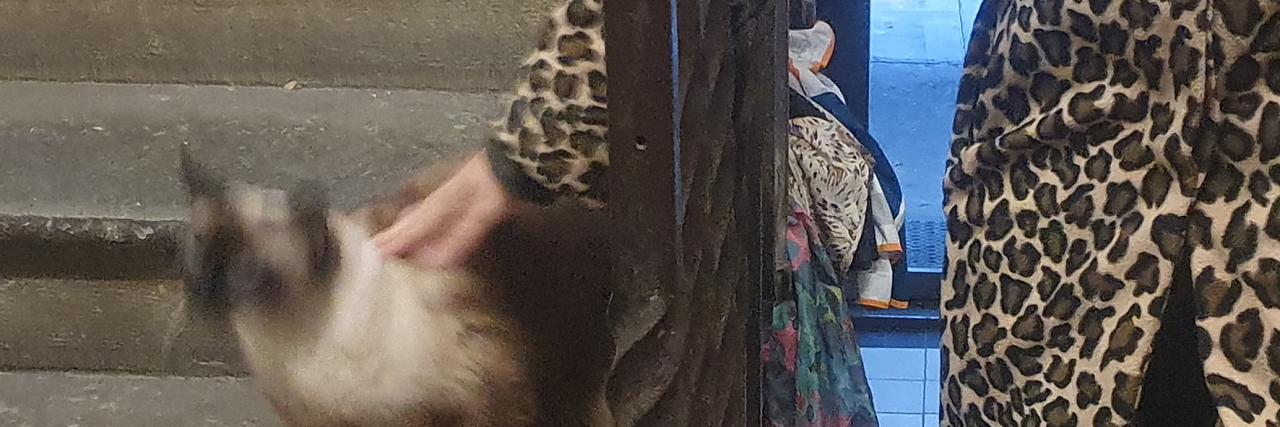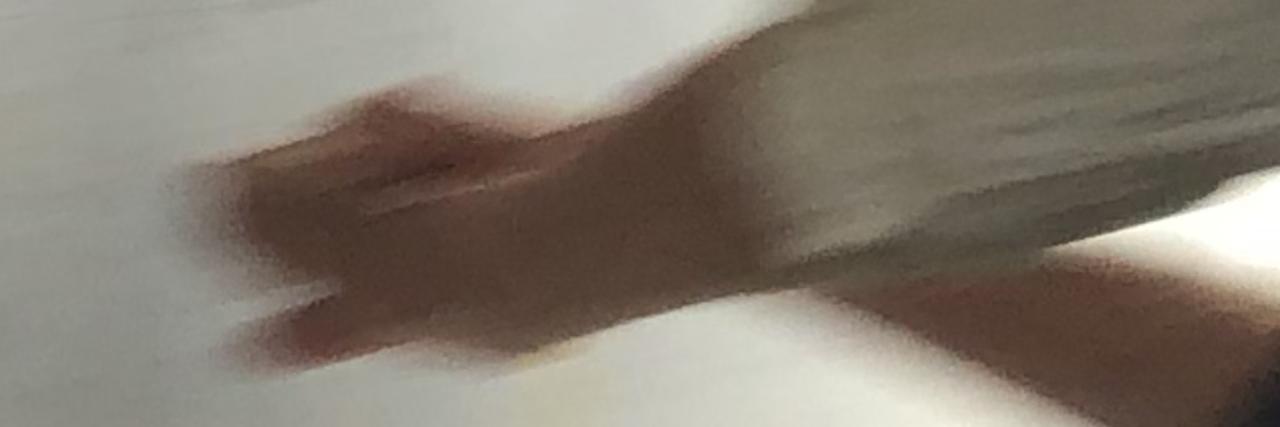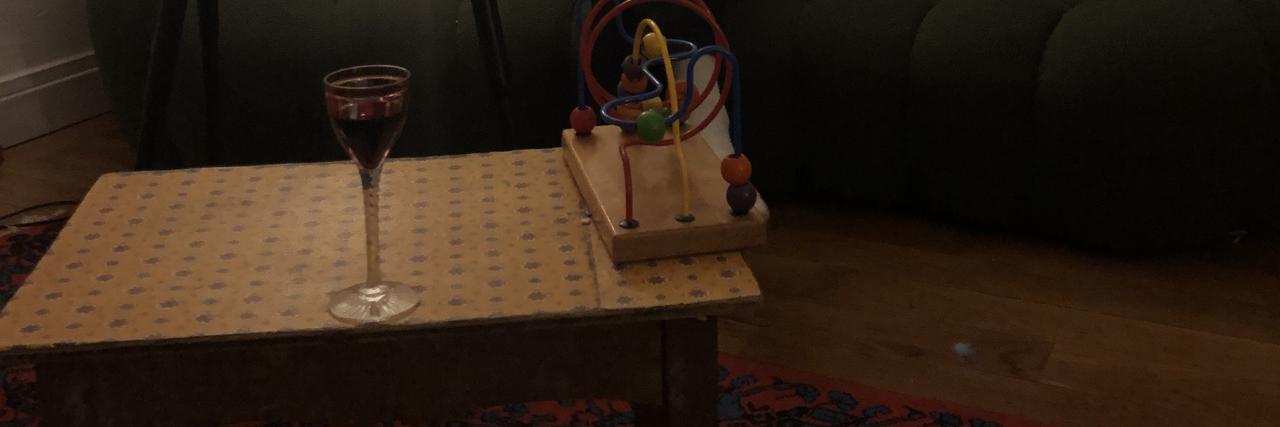Giada Olivotto
On October 2023, Documents d'artistes Genève, in partnership with the artistic production space Picto, create SCRIPTO, and invite the curator Giada Olivotto for a month-long residency.
This text is the result of this stay of research and encounters.
Subito a me il cuore*
a text by Giada Olivotto
*Subito a me il cuore si agita nel petto
solo che appena ti veda, e la voce
non esce, e la lingua si spezza.
Un fuoco sottile affiora rapido alla pelle,
e gli occhi più non vedono
e rombano le orecchie.
(Saffo, « Fragment 31 »)1

The adoption of the ethics of love transforms our lives, offering us a different set of values by which to live2. For some years now, I have returned to live in the southern outskirts of Switzerland. Not because I did not appreciate the magic and cultural drive of the cities that welcomed me until then, but because I felt that I was looking for something different, which suited my personality more in a context of conflicts and contradictions like the current one.
I was looking for an approach to my primary emotional needs. I thought that the Ticino outskirts could be the place where I could continue this search and find space for emotional needs such as security, stability, care and acceptance, autonomy, expressing one's emotions, having realistic limits, spontaneity, and play. At the same time, returning home, I was afraid that I would encounter various insurmountable problems such as the incessant boredom of the outskirts, the unmistakable ugliness of real estate speculation, and the classic back and forth between the two bars frequented for a lifetime. Surprisingly, what I was able to find and rediscover – but also build over the years with the help of friends, family, and non-human friends – is a community microcosm3 made up of people who have chosen and choose to live according to an ethics of love. A joyful approach to life that prioritizes emotional bonds over material ones. This type of approach is of vital importance in a context like that of the canton of Ticino, where the contemporary art scene is very small and fragmented. I feel very fortunate and privileged to have had this opportunity. To this day, I have the perception of being surrounded by a network of people who strive for their love, for the love of others through small gestures linked to the simplest moments of everyday life: learning together to recognize edible mushrooms, the collective gathering of mushrooms and fruits, discussion workshops, moving houses, walks in the company of non-human friends, taking care of family members, actively participating in the lives of those who are part of your life, and much more. These are gestures, moments, and activities that can also be carried out in a city – perhaps within the same building or neighbourhood – but that in a more peripheral living context have taken on different meanings for me, reshuffling the deck. This experience, combined with an approach and an ethics of life with love, has allowed me to learn to appreciate, improve, and love in a different way, in a new way.
Magnetically attracted by this new lens through which to see, I was able to let myself go and live my emotions more sincerely, falling in love. The multiple forms of falling in love and love are radical forms of movement, political acts that survive thanks to a continuous challenge and overturning of preconceived and fallible social constructs. Friendship forces us to explore deep connections based on mutual understanding and trust. Care and support push us to surpass the limits of selfishness, encouraging us to take care of others and to offer our help in times of need. In recent years, I have started to compile a small collection related to love themes, with the intention of investigating as much as possible the concept of Western love in hopes of reaching a personal emotional innovation.

The collection gathers examples of new perspectives on the conditions and characteristics of non-oppressive and improving ways of loving, a kind of rebellion against pre-established patterns that urges us to learn to love. So I fell into a forest of writings, songs, films, and images in which I was able to know and recognize various declinations of love. From the romantic love of the queen of magical realism, Paola Masino: "I love you, I can tell you now that we all die, how much I have always loved you, I serve you, my lord. I want to be with you, dead, be your coffin."4 To the anarchic and disruptive love between two prisoners, as when Anna Kuliscioff writes to Filippo Turati: "[...] just left my cell, which I left with melancholy, where a part of our life remained, a part of us, of our soul, I saw freedom through tears."5 To the dark, sensual love with futuristic notes of the meta-theater dreamed by Milva and Vangelis6: "[...] Look, we are exhausted castaways and the night puts out the fires even for us, but I wouldn't want to, dream with me." To the love of nocturnal canine escapes that do not let you sleep with the fixed thought, "Will it come back?"7 To the love of a revolutionary – or revolutionary of love – Ernesto Che Guevara: "At the risk of seeming ridiculous, let me say that the true revolutionary is guided by a great feeling of love. It is impossible to think of a genuine revolutionary lacking this quality."8 To self-love enclosed in the filters of Giulia Tofana: "Observe her well: she is like water and will not be noticed [...]"9.
The power of love has also become a matter of renewed feminist attention, not only in the theoretical debates of the 21st century. What is this power, sometimes practiced in ways that impoverish and oppress? Is it a form of domination? Or is it a liberating and empowering force in our contemporary societies? Love is a contested topic within feminist theoretical production: praised and ridiculed, envied and shared. There are many essays and texts - Love Studies are flourishing everywhere – that try to analyze the issue. One of these is Feminism and the Power of Love10, which tries to untangle the knot and the contradiction between love as a crucial place of power and gender asymmetries, and love as a vital source of human self-affirmation that we cannot do without. It is precisely this knot, between asymmetries and self-assertions, that led me – when I was invited by Delphine, Sara, and Viola to spend a month in Geneva – to decide to start a new collection: a collection of voices and testimonies about love and the different forms it takes in everyday life.

During my stay, I was fortunate to be a guest in several collective housing situations, where I could observe great participation of residents in collective daily life11, but also and above all the inclusion of other realities in such everyday life: the organization of weekly meals for many children at lunchtime, the meeting of an environmentalist collective on a Tuesday evening, the Thursday evening ball in the large communal kitchen, and much more. I was able to enjoy through listening to chorus and plurality of love in cohabitation. From this context of life, I then moved daily to Picto, where I could start working to feed my curiosity. From that moment on, I met new and old friends and lovers, dined with lively little people and their parents, visited workshops and sent questions via WhatsApp, staged a love escape in the mountains, visited a self-built architecture where one lives collectively, ate lemon chickens on sunny balconies, phoned noisily and rejoiced silently. During all these moments, I asked the same questions to all my interlocutors: asymmetries and self-assertion presented themselves within the dialogues I had with everyone. This series of interviews allowed me to reflect and formalize some considerations regarding love in the context of production and exhibition of contemporary art12 in the city of Geneva.
I had the opportunity to observe up close how powerful and tangible the bond created between individuals during their school years is, a bond that often reflects and influences various relational dynamics even in later life. Life, after academic training, is conditioned by the frenzy of capitalist society, where a "theft of time"13 is carried out. This time is subtracted and consumed by the system itself, making it difficult not only for economic stability but also for emotional stability. This phenomenon is reflected in the history of Western love itself, where the feeling of love has historically been valued and recognized mainly within the bourgeois class14. Love thus becomes a challenge to face: it manifests in contexts far from art and often takes root where there are no working relationships, giving rise to couples, groups, and duos of personalities that come from outside the artistic scene. However, the practical ideology of love can unknowingly lead us to establish ties functional to the dominant system, in which certainties are clung to and sunk into relationships built without thoroughly examining their dynamics. On many occasions, this is also reflected in friendships where, as noted and well elaborated by Isabelle Graw in The Benefits of Friendship, within the specific field of contemporary art: "Division, betrayal, and intrigue were all part of the daily agenda; the traditional model of artistic avant-gardes was thus replicated within our network of friends."15 We are unaware of the interest and transparency on which friendships in the context of contemporary art are founded. There are also small groups of people who cultivate bonds based on the ethics of genuine love, loving each other without expectations. These small communities or more solitary personalities stand out for their ability to share their vulnerabilities without reservation, engaging in relationships based on sincerity and mutual solidarity.

In conclusion, the experience of immersing oneself in the ethics of love has profoundly transformed my life and my perspective on the surrounding world. Living in a community that prioritizes emotional bonds and mutual care has offered a precious refuge from the frenzy of society and has shown the transformative power of love in everyday life. Through small gestures of kindness, solidarity and mutual understanding, I have learned to value human relationships beyond social conventions and the expectations imposed by the dominant system. Love is not just a romantic feeling or a fleeting emotion, but a powerful and revolutionary force that can guide us towards a more inclusive, compassionate, and supportive vision. It is only by embracing the ethics of love and cultivating relationships based on sincerity, reciprocity, and empathy that we can hope to build more livable contexts around us.
I want to dedicate this text to the loves of my life. This brief investigation is dedicated to Camilla, Claudia, Marta, and Francesca. Together, we are weaving an invisible fabric with which we can learn to protect, dry tears, warm hearts, and stir our desires at every moment of our lives. Even when all seems lost, we go in search of love16.
I also want to thank Sara, Delphine, Viola, Marie who invited me to take part in this residency, the collective of Rue Liotard and that of Rue Soubeyran for inviting and hosting me in October 2023. Angeles Rodriguez, Ghalas Charara, Giulia Essyad, Caroline Schattling Villeval, Yoan Mudry, Roxanne Bovet, Paul Paillet, Anaïs Wenger, Lou Masduraud, and also all the people I tried to see and/or contact without success!

Notes :
1Saffo, « Frammento 31 » in: *Liriche e frammenti*, edited by Ezio Savino, translated by Salvatore Quasimodo, Milan : Feltrinelli, Editore, 2015, p. 45.
2 bell hooks, Tutto sull'amore translated from All about love (1999) by Maria Nadotti, Milan: Il Saggiatore, 2022, p.94
3 I take as examples the people who are part of my life. It is not possible for me to make an intergenerational or regional cross-section of the Ticino situation.
4 Paola Masino, Racconto grosso e altri, (1941), Rina Edizioni, 2021, p.18. Translated by the author.
Paola Masino (1908-1989) was a writer, translator and intellectual. She lived in 20th century Rome, a city from which she stayed away until 1945 because her works were censored by the fascist regime.
5 From a letter to Filippo Turati dated January 1, 1899 from Anna Kuliscioff, Io in te cerco la vita. Lettere di una donna innamorata della libertà, a cura di Elena Vozzi, Rome: L’Orma editore, 2020, p.59. Translated by the author.
6 Pseudonym of Evangelos Odysseas Papathanassiou, composer and multi-instrumentalist who made the soundtrack for Blade Runner in 1994. Together with Milva he created the singular album " Tra due sogni " with very American sounds and sci-fi echoes.
7 I am thankful to Una and her escape that ended in a garden above the station.
8 Joy James, In Pursuit of Revolutionary Love, Bruxelles / London: Divided Publishing, 2022, p.5
9 Adriana Assini, Giulia Tofana - Gli amori, i veleni, Naples : Scrittura & Scritture, 2017, p.24. Giulia Tofana (?-1651) was the most famous poison inventor in Italy, as well as a courtesan at the court of Philip IV of Spain and a sorceress. She is credited with inventing "Aqua Tofana," a tasteless, odorless, and colorless poison that killed its victims within a few days. Giulia Tofana was a way out for many women who were victims of violent marriages.
10 Adriana García-Andrade, Lena Gunnarsson, Anna Jónasdóttir (dir.), Feminism and the Power of Love: Interdisciplinary Interventions, London: Routledge, 2018.
11 Thanks again to the cooperative CO2P-L71 from the rue Liotard and Equilibre, rue Soubeyran, for their hospitality.
12 However, this is a minimal sample of people, so it does not correspond to an actual trend and/or factual reality, but rather to a personal impression.
13 Jennifer Guerra, Il capitale amoroso - Manifesto per un eros politico e rivoluzionario, Milan: Bompiani, 2021, p.32.
14Jennifer Guerra 2021, p.32